Polypterus ornatipinnis is the most beautifully colored bichir. This species is native to the Congo and grows to over 60 cm in length. Nowadays, however, almost exclusively offspring from Indonesia are on the market. Despite the impressive size that Polypterus ornatipinnis can theoretically reach, this species was the first that could be bred by hobby breeders in “normal” sized aquariums (120 cm edge length). Walter Armbrust, who lived in Hamburg, successfully “cracked” this mystery nut as early as 1966.
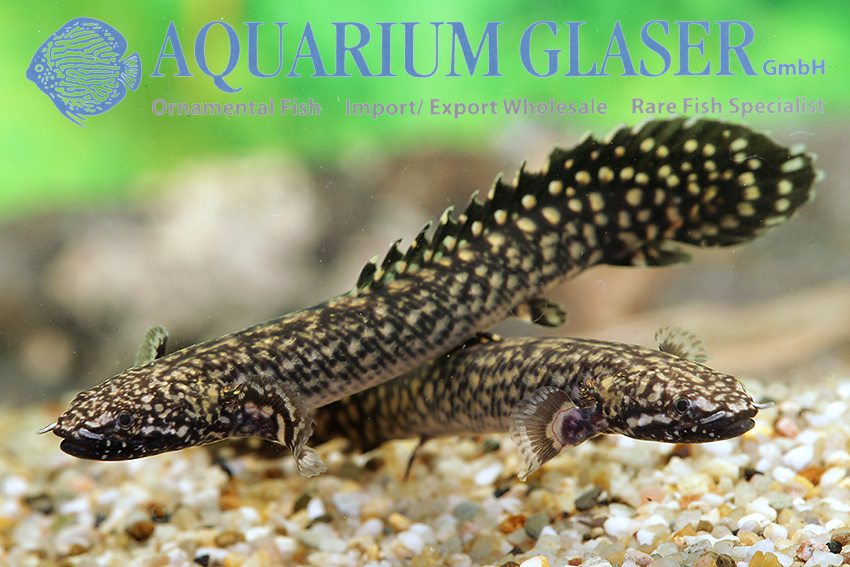
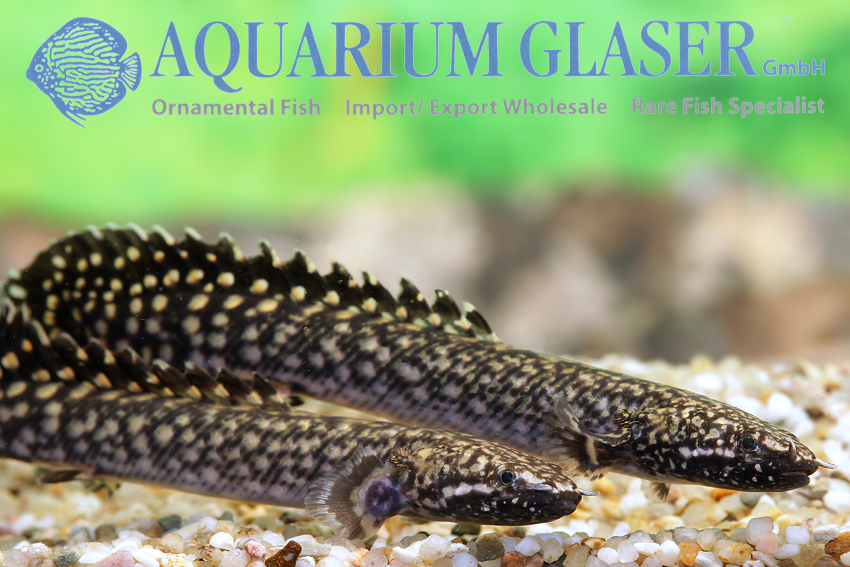
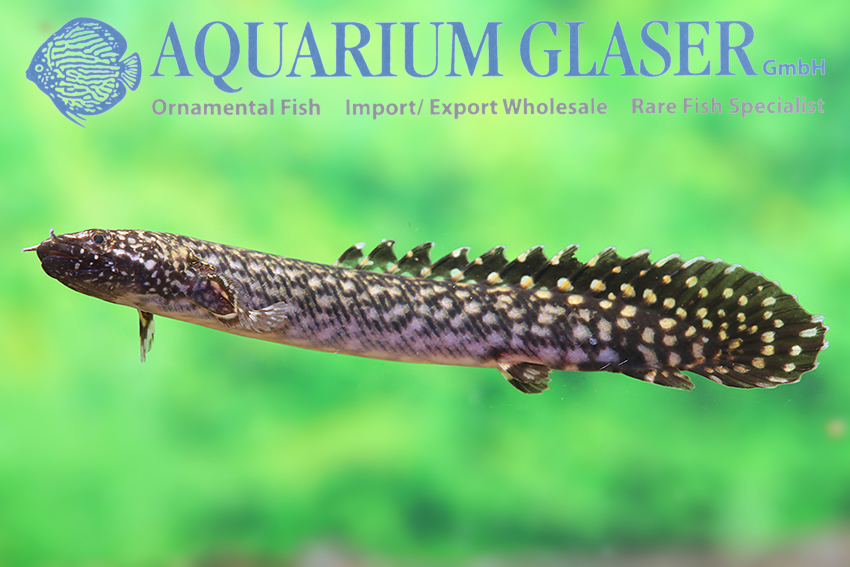
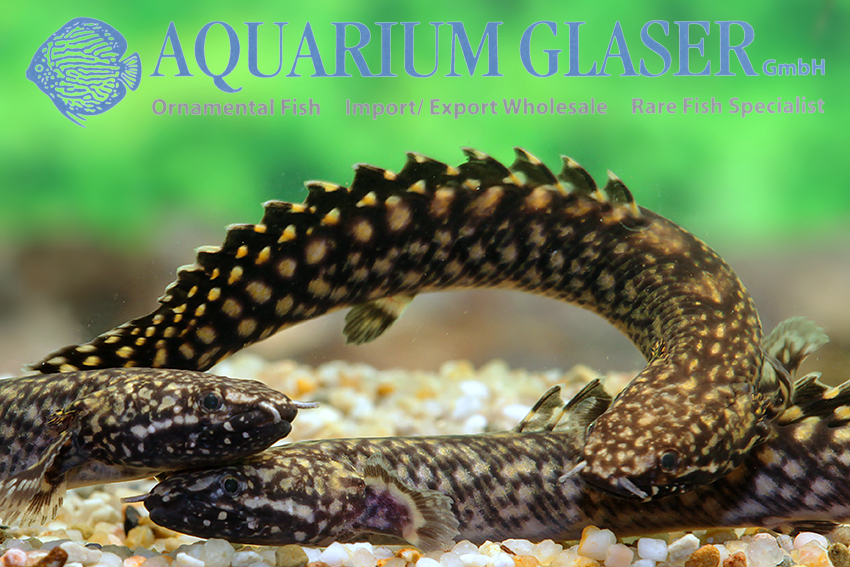
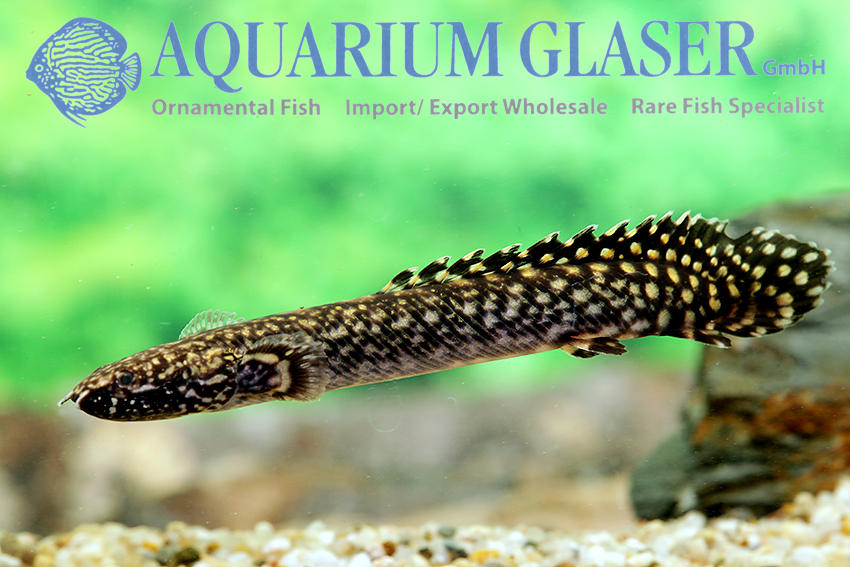
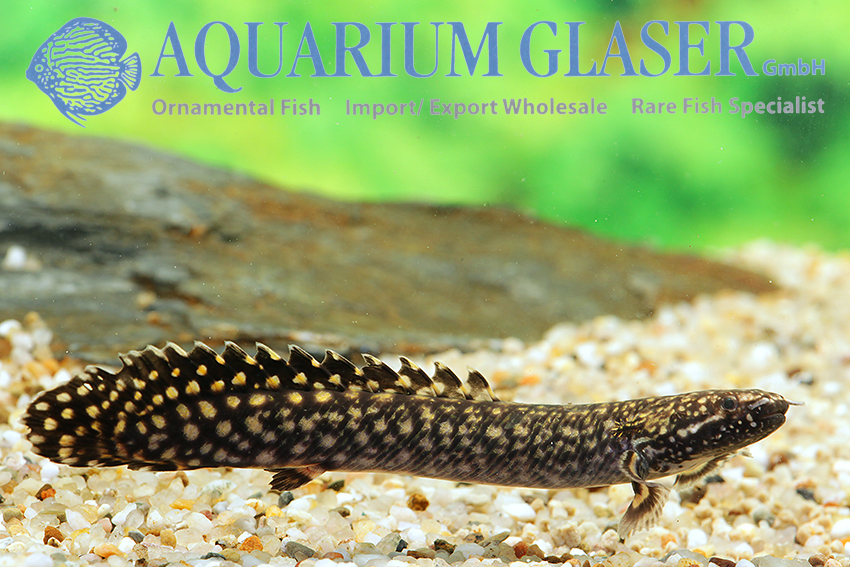
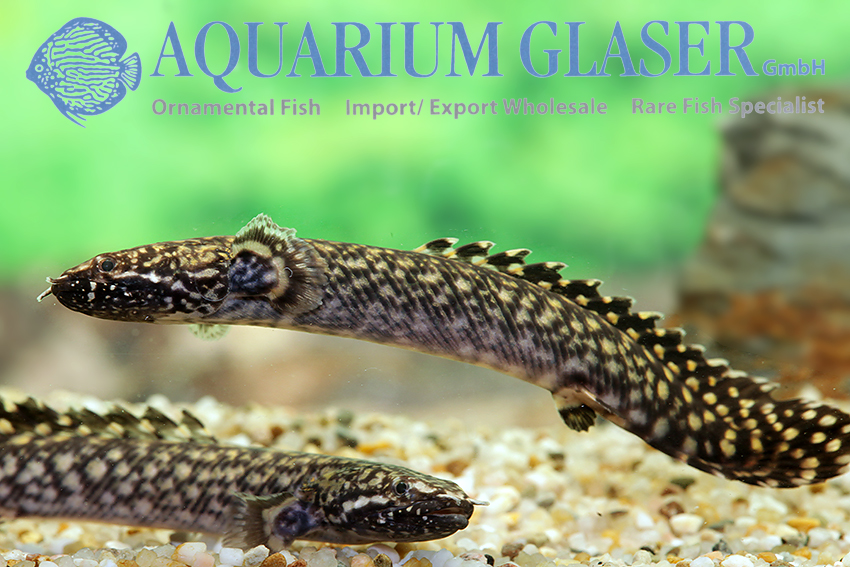
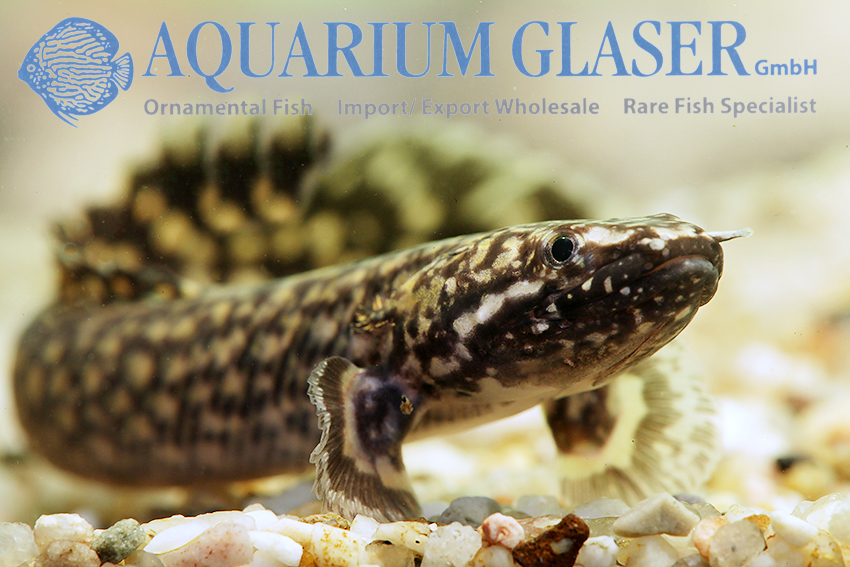
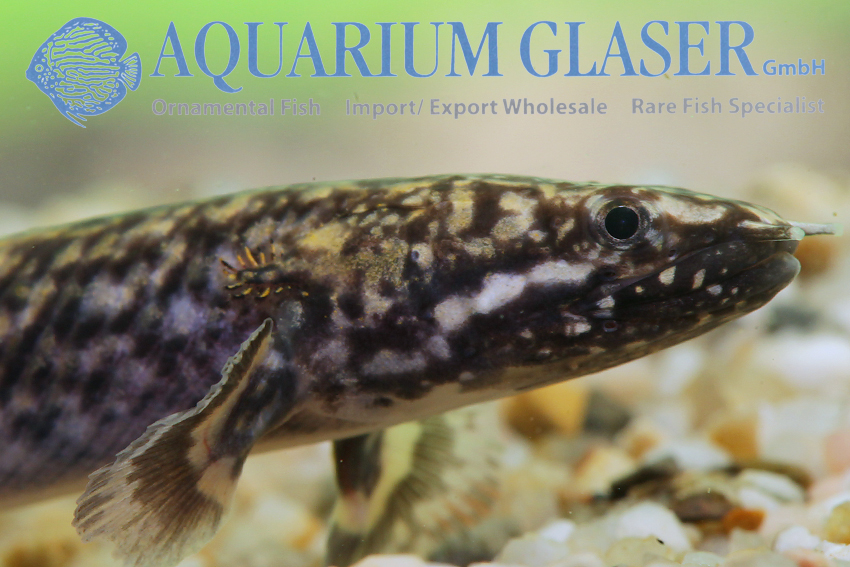
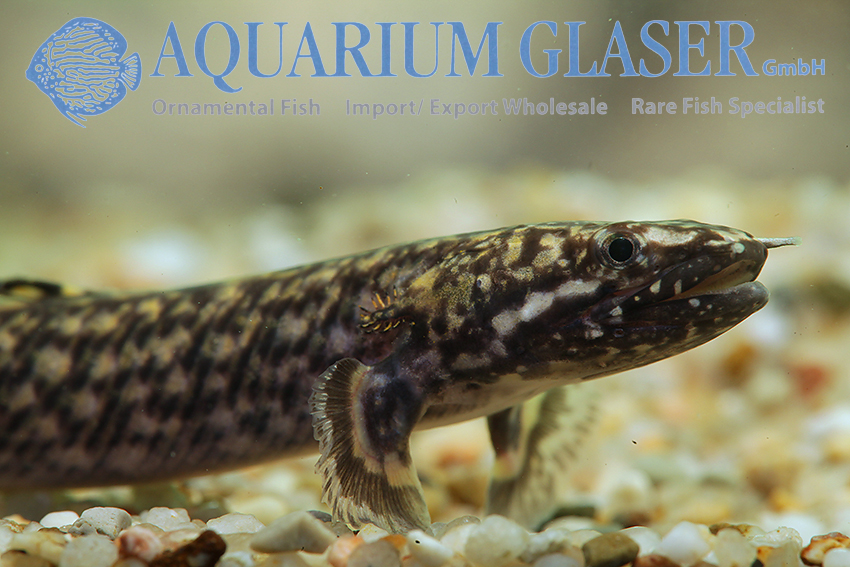
The fish with its contrasting yellow and white speckling on a dark background can hardly be confused with any other Polypterus species. Sexual differences, care and breeding are the same as for all bichirs: Males develop a considerably larger anal fin than females when they reach sexual maturity. To stimulate spawning, a rainy season must be imitated, which is done by frequent, very generous water changes with soft and cool water, whereby the conductivity must drop significantly. A subsequent increase in temperature then triggers the spawning event. The male drives the female. The eggs are scattered in portions in fine plants, roots etc. These fish do not practise brood care.
The larvae of bichirs have external gills, similar to those of newts and salamanders. These gill branches are also still visible in the young animals we offer. Nevertheless, the animals already breathe through lungs and take in air at certain intervals at the surface of the water.
Bichirs are obligate carnivores; however, they are not picky in this respect. Young animals can be offered the entire range of frozen and live foods, and granules are also readily accepted. Adult P. ornatipinnis need large chunks, such as earthworms, mussel and fish meat, whole food fish (preferably frozen food such as smelts), etc. Polypterus are usually peaceful towards each other and towards fish that are not suitable as food. However, there may be individual exceptions. Plants are completely ignored unless they are in the way of the animals.
For our customers: the animals have code 164011 on our stocklist. Please note that we only supply the wholesale trade.
Text & photos: Frank Schäfer




